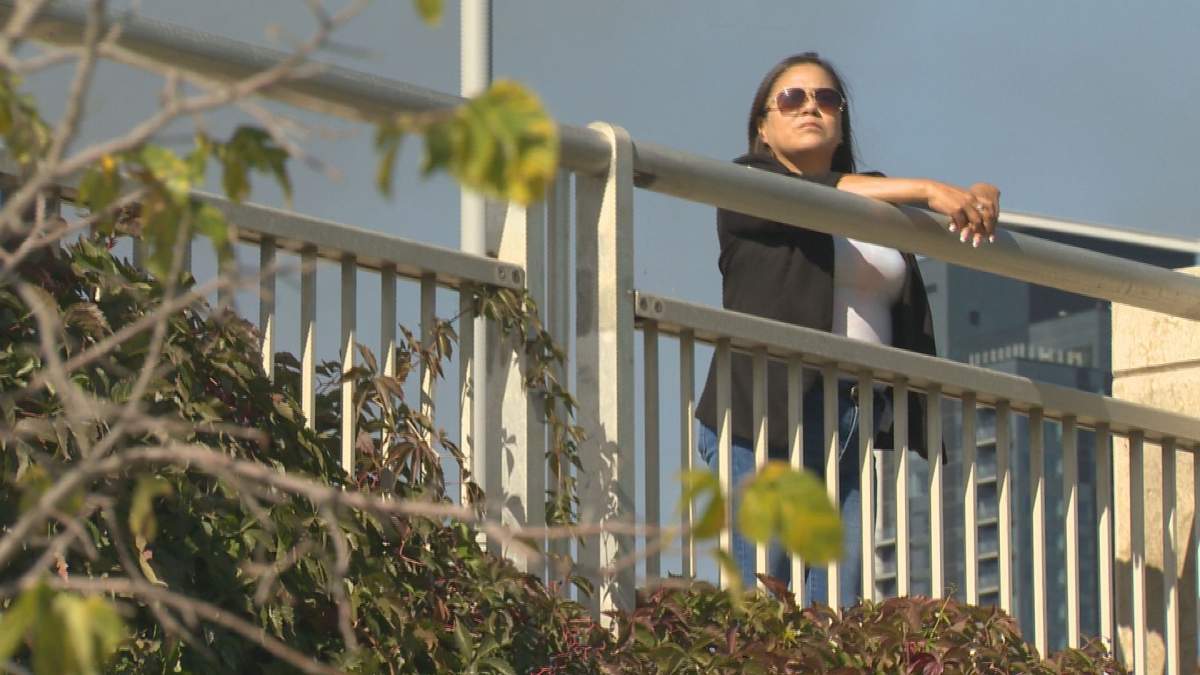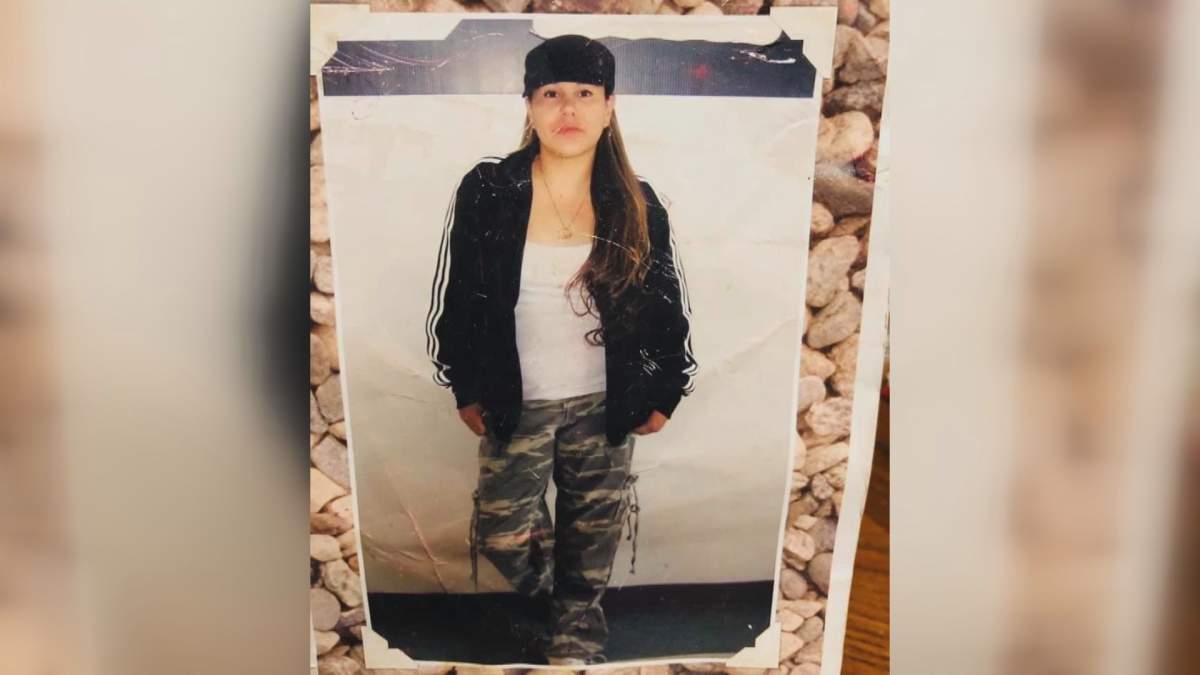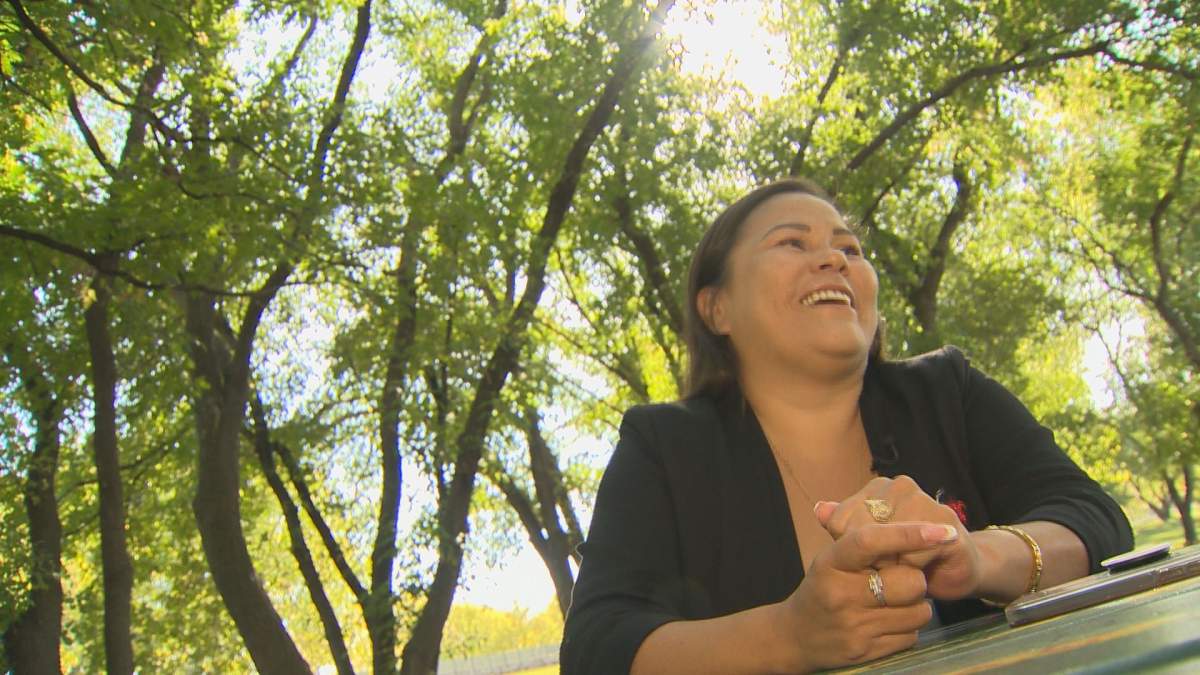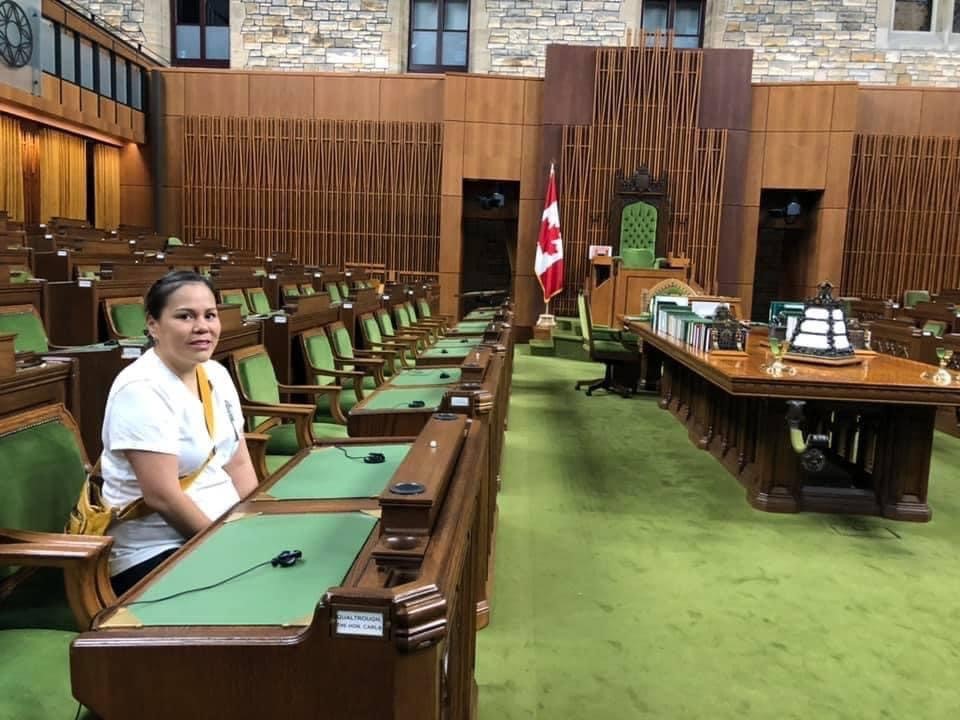Tania Ross’s story is one of trauma, hope, forgiveness and redemption.

The 43-year-old is originally from Opaskwayak First Nation in northern Manitoba and grew up in Winnipeg’s North End.
“My life story, what I’ve been through, I have to share it now,” Ross told Global News. “My journey has been a long one.”
At a young age, Ross became involved in a life of gangs, drugs and crime.
“I got convicted of second-degree murder in Saskatoon; it was gang-related. I did 20 years in prison and I was heavily, heavily, heavily involved with the gang lifestyle,” she said.
At one time, Ross says she had accepted that lifestyle as her fate.
“At the time, I wasn’t trying to change to get out of prison, because I had already accepted that I was going to die in prison,” Ross said. “I had no hope. I was like, ‘This is my home, I’ve already been here over 10 years. This is my home, I’m going to die in here.’”
Ross says being gang-involved and being incarcerated were dark parts of her life. She spent time in segregation while incarcerated, something she still doesn’t know how she recovered from. The longest time she stayed in segregation was six months; something she says took a major toll on her mentally and emotionally.
“Over time, up until 2010, I spent a lot of time in segregation. I spent many Christmases in segregation, many birthdays, and I don’t know how I came out OK out of that, I still don’t know. Because many of my sisters have lost their lives in segregation … and they didn’t make it out. And so it was very, very hard inside,” Ross recalled.
“When you know somebody’s life story and they’re almost exactly like you and they go to segregation and they kill themselves and they hang themselves and they don’t make it out… It does something to you.”

Get daily National news
“And so when my sisters see me, and they see me on TV and see that I’m doing good, I can give them hope that you can do this — you can make it out, you can give back to your community. And so that’s one of the reasons why I want to come on, to give people hope.”
It was when Ross turned 30 in prison that a pivotal moment came.
“I wanted a different life but I didn’t know how. I never lived a legit life in my whole life. I never knew what it was to have a legit job, I never had a legit job,” she said.
“I didn’t know how to live a good life. It was always about drugs, gangs, hustling, all of that kind of gang lifestyle mentality, prison mentality. And so when I was 30, I knew I wanted to change, but I just didn’t know how. I didn’t know how to take the first step.”
The first step came by connecting with an elder who was working with inmates and reconnecting and learning about her culture, spirituality and childhood trauma. Ross says that’s when the load became lighter.
“As I worked and talked about what happened to me as a child (and) I didn’t know, I blamed my mother till I was 30,” Ross said. “I didn’t understand that she was a residential school survivor and I didn’t know the story of how her and my uncles and aunty got scooped up by the Indian agent and taken to residential school.
“Once I learned that story, I was able to forgive myself. I started forgiving myself, I forgave my mom, because she only could do the best she could with what she had.”
That forgiveness, Ross says, was the start of her path forward — one that would take her out of prison and give her a second lease on life, something she realized was becoming a reality when she got her first pass out of prison.
“I remember the warden, she gave me one pass and I didn’t even know at the time what that meant and I just said ‘OK,’ and I thanked everybody and walked out of that room. And we walked into the hallway and my elder went like this to me, (she) said, ‘You’ve got it, my girl.’ And I’ll never, ever forget those words and that feeling, because at that moment, I knew I was not going to die in prison,” Ross said.
“I sobbed like a baby and I cried. And from that day forward I just kept putting one foot in front of the other, one foot in front of the other.”
Ross went to a minimum security halfway house and was granted day parole, which she chose to return to Winnipeg to do.
“They said, ‘Where do you want to go?’ And I said I want to go home to Winnipeg, I want to go back to Manitoba soil. I want to give back to my community.”
That involved revisiting the North End and revisiting the community where she experienced her childhood trauma, but this time, with a different purpose.
“My elder once taught me to go to all those houses that I loved in the North End and offer tobacco and pray and call my spirit and say, ‘Little Tania, you don’t live there no more, you’re a grown woman, you’re safe now,’” Ross said.
After being released, Ross struggled with finding employment for a time, until she was eventually hired at a store in the Polo Park Shopping Centre and found her feet in a sales position.
“I was like, ‘Oh my gosh, people really do believe to give people second chances,’” she said.
Ross eventually got hired to work as a program supervisor working with high-risk youth. Six months later, she became the manager of a healing lodge working with high-risk youth in Manitoba. Today, she spends her time focusing on helping youth, travelling for motivational speaking engagements and spending time with her family.
“What I take from it is, how would little Tania want to be treated in CFS (Child and Family Services) when I was in CFS?” Ross said.
“How can I be a trusted adult for these kids so that (they know) you don’t have to make the same mistake, you don’t have to go to prison for 20 years to turn your life around, man,” Ross said through tears.
“I understand where you’re coming from, I understand that you want to go do drugs or drink alcohol to numb the pain…. Talk to me, let’s go do some fun stuff.”
Ross says she knows there will be people who are critical of her.
“I’m always going to have people that are like, ‘Oh she doesn’t deserve to be out here,’ and then I’m going to have other people like, ‘Keep going Tania, you’re doing amazing,’” she said.
“Everybody is a human being, and I always believe in being given a second chance, I always believe in people getting a second chance, and really working hard for it.”
And Ross says her way of forgiving herself is by taking her second chance and using it to share her story of redemption as a way of inspiring others.
“I just want to say to the next youth, the next little Tania, you don’t have to go through all of that to come out strong and to find yourself in this world and to give back,” Ross said. “Cause we only have so much time on this earth, and so if I can help from my past experience, what I’ve been through, if I could (use that) to help the next youth, even just one, then I’m doing it.”
















Comments